Corporate chiefs back artificial intelligence as means to boost their operations
After a year of using AI tools to improve operational efficiency, top CEOs say they’re heading into the new year working out how generative AI can more broadly benefit their businesses.
Telstra is forging ahead with using artificial intelligence, with many businesses, from the big banks to Bunnings, using it to improve customer service, as senior executives study how the next generation of AI can further boost their businesses.
The Australian’s CEO Survey shows that 2024 was the year companies forged ahead with using AI tools such as Microsoft Copilot to improve operational efficiency, and they are heading into 2025 working out how generative AI can be used more broadly in their businesses.
“We’re at the forefront of AI adoption in Australia, working with global leaders to innovate and bring the best technology to our people and our customers,” Telstra chief executive Vicki Brady told The Australian.
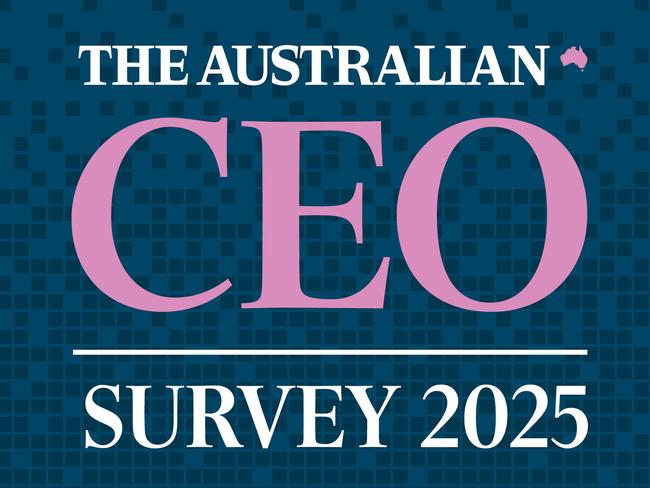
Like many big Australian companies, the telco is now using AI across many parts of its business, including using it to improve customer service.
“We’ve rolled out our in-house-built AI tools AskTelstra and One Sentence Summary to help our teams respond to customers more efficiently and effectively,” she said.
“AskTelstra replaces more than 2000 knowledge management articles to give our people a single, clear and consistent answer for customers, instead of scrolling through a list of search results.”
One Sentence Summary gives frontline staff a simple summary of a customer issue, which means customers don’t have to repeat information when they call.
Ms Brady said Telstra was using AI to analyse more than a billion data points a day across its mobile network to find issues and resolve them before they could affect customers.
She said Telstra was also working towards an “autonomous, self-healing network” to improve resilience, experience and drive efficiencies.
“This is the scale we need to be thinking at to realise the massive productivity potential of AI,” she said.
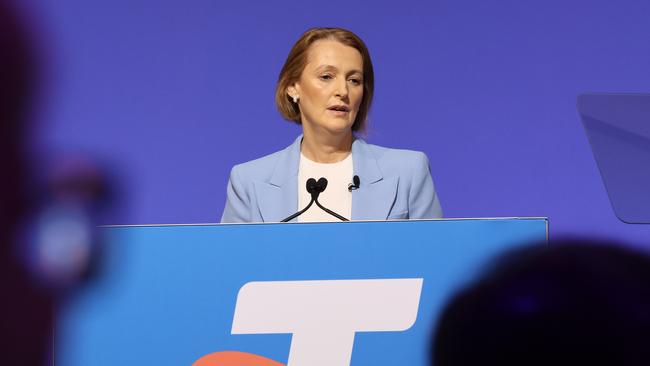
But she said the shift to using AI in business would require more training of staff to make sure they could take full advantage of its potential.
“This is why we’ve set up our Data & AI Academy and invested in 21,000 Microsoft Copilot licences for our people – the biggest deployment in Australia,” she said.
Wesfarmers chief executive Rob Scott said Bunnings was using AI-enabled technology for a service called “Ask Lionel”, which gives its in-store staff real-time product information through headsets to answer customer questions.
This allows a team member to “ask” a question live, and receive real-time information, such as warranty terms or detailed product information.
Mr Scott said this was a “smart and considered use of AI that directly improves the customer experience and is more efficient for our team”.
“While this technology is in its early stage, the initial feedback is very positive from both our customers and our Bunnings team,” he said.
He said the group, which also owns Officeworks, Kmart, Target and Priceline pharmacies, was also looking at other applications of AI to improve productivity and efficiency.
“Embracing opportunities that come from AI will allow businesses to be more successful,” Mr Scott said. “It can remove more of the manual and remedial tasks, creating more interesting and better paying jobs.”
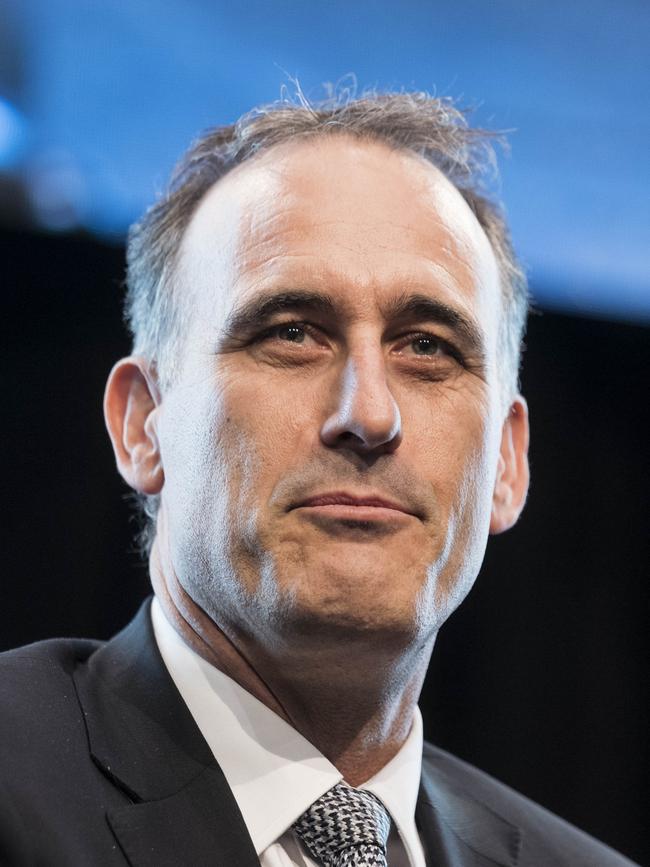

National Australia Bank chief executive Andrew Irvine said his bank had more than 1000 engineers working with Amazon Q technology to help with coding.
He said the bank was using generative AI for knowledge management for bankers, marketing content creation, and Copilot for summarising reports and drafting notes and accelerating the review of trust deeds.
“Its about freeing up our bankers’ time so that they can spend it with customers (and) making things easier for our customers,” he said.
Macquarie Group chief executive Shemara Wikramanayake said the company had rolled out Macquarie AI Chat, a generative AI tool, to all its staff worldwide, and it was now being used by more than 6000 people a week.
“We have implemented several AI technologies already and our businesses are continuing to test different options that work for their needs,” Ms Wikramanayake said.
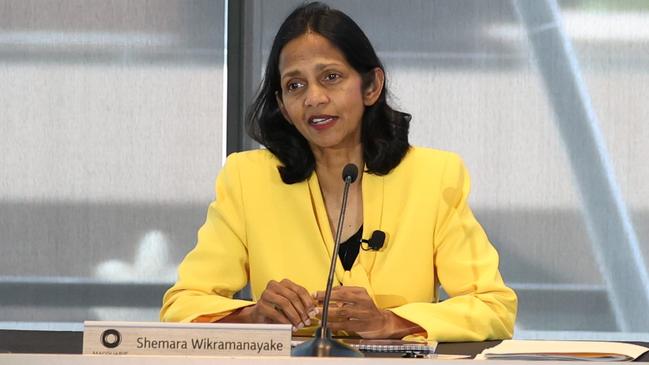
“It assists staff with a range of tasks aimed at uplifting their productivity and creating more capacity as we continue to develop innovative solutions for clients – ranging from those using our leading retail digital banking services to the largest institutions.”
ANZ chief executive Shayne Elliott said the bank had stepped up its work on AI from 2023, when it was working on several “proof of concept” ideas, to 2024, when these ideas were being examined for their “proof of value”.
“We asked our teams to start defining opportunities that had real, tangible value for our shareholders and our customers,” Mr Elliott said.
He said recent work had included testing the efficiency gains for ANZ’s team of more than 3000 software engineers using a programming co-pilot.
“We found that they could get some tasks done up to twice as fast,” he said.
He said ANZ was the first bank in the region to roll out GitHub Copilot at scale for its software development teams, a move that was now delivering “measurable increases in speed, quality and volume”.
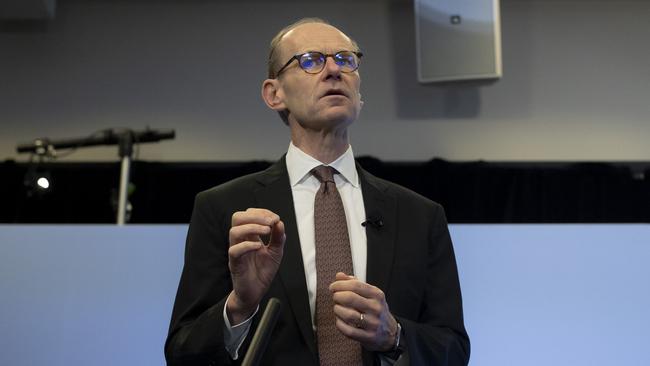
The group has also been testing desktop productivity tools with Microsoft Copilot to help search for information, draft content and review documents.
KPMG Australia chief executive Andrew Yates said his company was “well into advanced stages on our use of AI”, including using its proprietary AI platform, KymChat, in its daily operations.
He said 2024 had been the year when it had stepped up its use of AI in the business. “In 2023 we were learning about the technology with chat tools,” he said. “In 2024 we have moved to developing AI agents to assist our people in performing tasks.”
He said the use of AI technologies had seen the company save more than 200,000 hours in time spent on daily tasks, “freeing up our people to spend more of their time on higher-value work”.
The CEO of Tyro Payments, Jonathan Davey, said the company had seen “promising results” from its trials on the use of AI agents in its health business, particularly for customer support.
He said 2024 saw 45 per cent of the 8500 requests to Tyro Health involve an AI agent, with 51 per cent of those resolved without human intervention.
“This has highlighted a great transformational opportunity across our business which we’re excited to leverage further,” Mr Davey said.
Coles CEO Leah Weckert said Coles was “well advanced” in its use of artificial intelligence, using it across its supply chain, merchandise and HR operations.
“AI can identify patterns and trends in data to help us make the right decisions based on the experiences we are looking to create, whether it is for our customers or our team members,” she said.
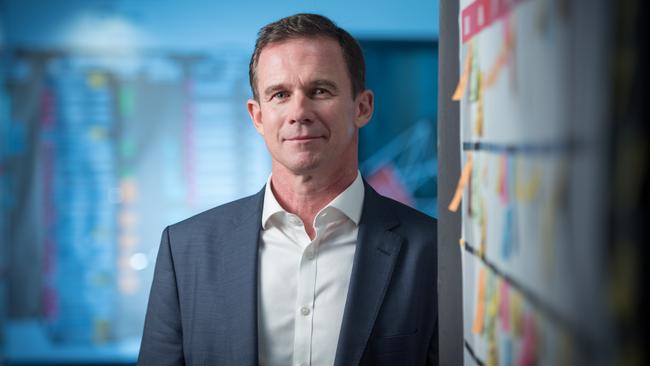
She said Coles would “continue to embrace” AI, “particularly as it complements our Accelerated by Digital strategic pillar in our strategy”.
Rio CEO Jakob Stausholm said the miner’s most advanced use of AI and automation was in its operations in the Pilbara.
“Technologies like automation and AI are shaping how we operate, making processes safe, more efficient and more sustainable,” Mr Stausholm said.
“AI is not only improving operations but also reinforcing our commitment to ESG priorities.”
But he said the company was “still in the infancy of learning to truly use all the data we generate from automation, including application of AI”.
BHP chief executive Mike Henry said BHP had been increasing the use of AI in its operations with wide-ranging applications, including in resource discovery, extraction, processing and along its supply chain.
“We use AI-driven predictive maintenance to monitor equipment health and predict potential failures before they occur,” Mr Henry said.
“AI technology at processing plants within our Escondida copper mine in Chile has helped reduce water and energy consumption, and the application of machine learning helped us discover new copper deposits in Australia and the United States.”
Westpac’s new chief executive, Anthony Miller, said his bank had been using traditional AI for many years to drive better performance.
“The most valuable use of Gen AI for us is to make it easier for our people to get things done – delivering better results faster to our customers,” Mr Miller said.






To join the conversation, please log in. Don't have an account? Register
Join the conversation, you are commenting as Logout